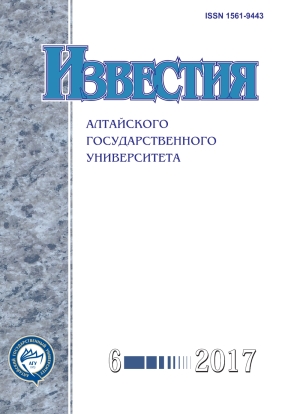Several Problematic Issues of Legal Regulation of Wiretapping as an Operational-Investigative Measure
Abstract
The article highlights a number of problematic issues of the legal regulation of wiretapping during the operational search activity; analyzes the operativesearch legislation.In the decision of the European Court of Human Rights on the case of "Roman Zakharov v. Russia" a general conclusion was drawn that the Russian legislation regulating wiretapping does not meet the criteria of "quality of law" and is not able to restrict the use of unspoken observation methods only to the cases, when it is "necessary in a democratic society". The adoption of this Decision by the European Court of Human Rights was aimed at bringing the legal norms governing the wiretapping of telephone conversations in accordance with international standards. In addition, the authors examined the decisions of the Constitutional Court of the Russian Federation on complaints of citizens on violation of their constitutional right to the secret of telephone conversations. The article examines the problem of judicial supervision over the procedure for the application of operational search measures that limit the constitutional right to the privacy of correspondence, telephone conversations, postal, telegraphic and other communications, without preliminary judicial decision in cases that do not tolerate delay. Taking into account the legal positions of the European Court of Human Rights and the Constitutional Court of the Russian Federation, proposals were made to improve legislative norms and law enforcement practice.
DOI 10.14258/izvasu(2017)6-20
Downloads
Metrics
References
Отчет о работе судов общей юрисдикции по рассмотрению уголовных дел по первой инстанции за 12 месяцев 2016 года [Электронный ресурс]. — URL :http://www.cdep.ru/index.php?id=79&item=3832 [Дата обращения: 30.04.17]
Определение Конституционного Суда Российской Федерации от 14.07.1998 № 86-О // СПС «Консультант Плюс».
Постановление Европейского суда по правам человека по делу «Роман Захаров против Российской Федерации» от 04.12.2015 (жалоба № 47143/06) // СПС «Консультант Плюс».
Абрамочкин В.В. Проверка судом законности и обоснованности проведения прослушивания телефонных переговоров, начатого в условиях, не терпящих отлагательств // Российская юстиция. — 2014. — № 12.
Исмаилов Ч.М. Основания и условия ограничения конституционных прав граждан в ОРД и их соотношение с уголовно-процессуальными: проблемы и перспективы (применительно к розыску безвестно исчезнувших лиц) // Российский следователь. — 2015. — № 17.
Кассационное определение судебной коллегии Верховного Суда Российской Федерации от 13.12.2012 № 48-О12-110 // СПС «Консультант Плюс».
Архив Конституционного Суда Российской Федерации. — Арх. № 548/15-01/17.
Определение Конституционного Суда Российской Федерации от 28.03.2017 № 568-О // СПС «Консультант Плюс».
Определения Конституционного Суда Российской Федерации от 04.02.1999 № 18-О, от 24.11.2005 № 448-О, от 21.05.2015 № 1136-О и др. // СПС «Консультант Плюс».
Определение Конституционного Суда Российской Федерации от 17.06.2010 № 844-О-О // СПС «Консультант Плюс».
Архив Конституционного Суда Российской Федерации. — Арх. № 14412/15-01/15.
Архив Конституционного Суда Российской Федерации. — Арх. № 14026/15-01/15.
Иванов С.В. Законодательство об оперативно-розыскной деятельности отстает от жизни // Уголовный процесс. — 2016. — № 3.
Copyright (c) 2017 А.Е. Чечетин, И.Д. Шатохин

This work is licensed under a Creative Commons Attribution 4.0 International License.
Izvestiya of Altai State University is a golden publisher, as we allow self-archiving, but most importantly we are fully transparent about your rights.
Authors may present and discuss their findings ahead of publication: at biological or scientific conferences, on preprint servers, in public databases, and in blogs, wikis, tweets, and other informal communication channels.
Izvestiya of Altai State University allows authors to deposit manuscripts (currently under review or those for intended submission to Izvestiya of Altai State University) in non-commercial, pre-print servers such as ArXiv.
Authors who publish with this journal agree to the following terms:
- Authors retain copyright and grant the journal right of first publication with the work simultaneously licensed under a Creative Commons Attribution License (CC BY 4.0) that allows others to share the work with an acknowledgement of the work's authorship and initial publication in this journal.
- Authors are able to enter into separate, additional contractual arrangements for the non-exclusive distribution of the journal's published version of the work (e.g., post it to an institutional repository or publish it in a book), with an acknowledgement of its initial publication in this journal.
- Authors are permitted and encouraged to post their work online (e.g., in institutional repositories or on their website) prior to and during the submission process, as it can lead to productive exchanges, as well as earlier and greater citation of published work (See The Effect of Open Access).








